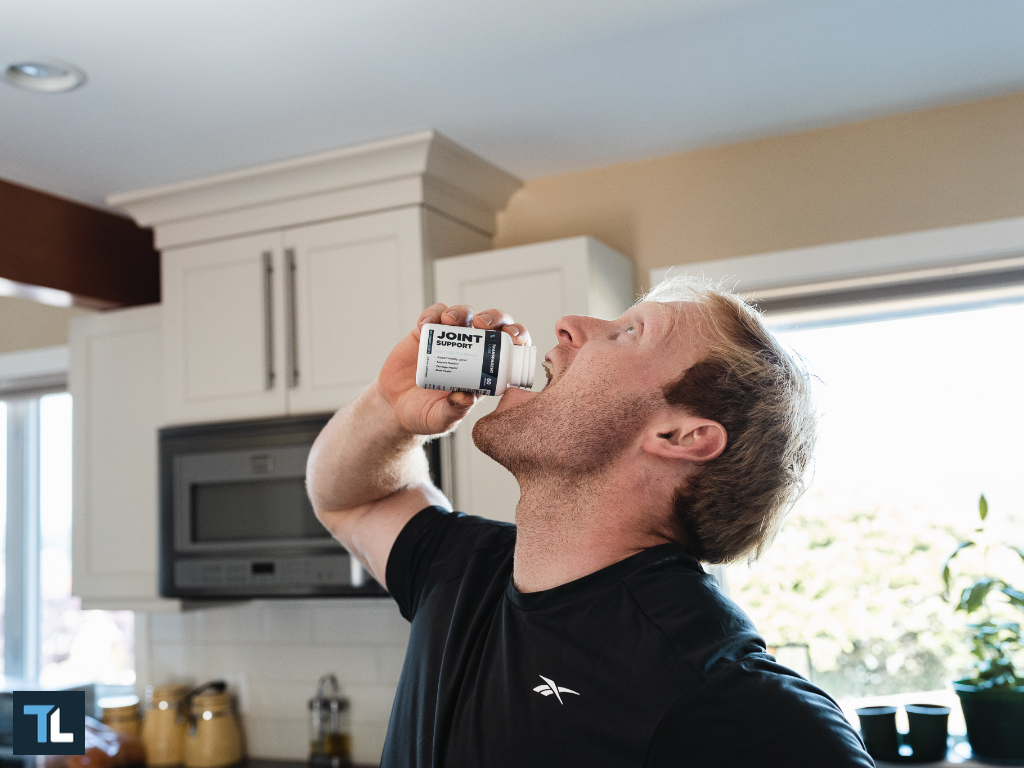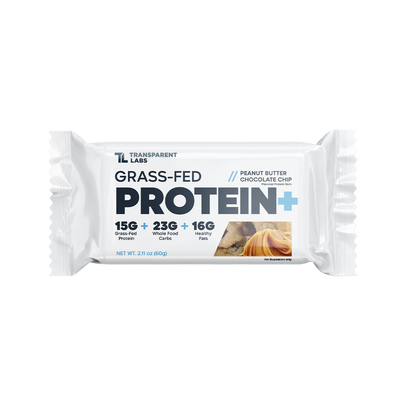Regulation of Dietary Supplements: Problems and Promises

Dietary Supplement Regulation: The Pros and Cons
Market research suggests the dietary supplement, or "nutraceutical," industry was valued at $151 billion in 2021 and is expected to grow 8.6% annually through 2028 [1]. The United States accounts for roughly one-third of all supplement sales globally.
As a supplement brand committed to making dietary supplements backed by scientific evidence and fully transparent product labels (i.e. no proprietary blends), we've devoted considerable time and resources to ensure the integrity of manufacturing such products. Quality assurance and safety testing are crucial components of our finished dietary supplement products.
While we have seen strides made in the right direction in terms of quality compliance and product transparency, the supplement marketplace is still rife with unscrupulous manufacturers and concerning labeling practices. Government agencies, namely the Food and Drug Administration (FDA) and Federal Trade Commission (FTC), are pretty "hands-off" vis-à-vis regulating dietary supplements. In some ways, this is a good thing for the dietary supplement marketplace; in others, it enables wrongdoing.
Does the Food and Drug Administration (FDA) Regulate Dietary Supplements?
In contrast to pharmaceuticals, the United States Food and Drug Administration (FDA) is not authorized to review dietary supplement formulas for safety and efficacy before they are marketed. The FDA rarely cracks down on claims made about such formulations, with a few exceptions (e.g. dietary supplements that claim to cure disease or prevent illness).
However, the FDA provides a framework for supplement labeling and safety, and they are involved in post-marketing surveillance of these products. Just as patients and health care providers can report adverse effects of pharmaceuticals, the FDA also provides resources for these reports on dietary supplements.

But unlike prescription and over-the-counter medications, the FDA (and the Federal Trade Commission) assumes a reactive role towards dietary supplements more than an active one. They will intervene post-hoc if they suspect a specific product contains ingredients that don't meet the statutory definition of "dietary ingredients," which includes:
- Vitamins and minerals
- Amino acids
- Herbs or botanicals
- Other substances that can be used to supplement the diet
These ingredients must be taken orally to classify as dietary ingredients. It is incumbent on dietary supplement companies, manufacturers, and distributors to ensure that each ingredient in finished products meets the definition of a dietary ingredient.
When a dietary supplement company formulates a product with an ingredient that hasn't been marketed prior to October 1994, they must notify the FDA of this "new dietary ingredient" (NDI) at least 75 days before release for a pre-market safety evaluation. (This was an amendment made to the Food, Drug, and Cosmetic Act in 1994.)
Drugs Found In Dietary Supplements
The reactionary nature of the FDA in the dietary supplement marketplace has led to numerous cases of athletes failing drug tests unwittingly and consumers ingesting products containing undisclosed pharmaceutical adulterants. According to recent research, this continues to be a worsening blight of the dietary supplement industry [2].
Lackadaisical oversight of dietary supplements is ostensibly responsible for the increasing prevalence of tainted products reaching the marketplace. A 2018 study found that upwards of 750 dietary supplement brands had products testing positive for at least one drug between 2007–2016 [3]. What's disconcerting is that less than half of the offending supplements were recalled by the Food and Drug Administration and Federal Trade Commission.
Furthermore, roughly 20% of those tainted dietary supplement products contained more than one unapproved drug, notably synthetic steroids and psychoactive agents. The GABA analog phenibut is a relatively common adulterant despite being an unapproved drug and banned in dietary supplements [4].
To no surprise, "sports supplements," "male performance enhancers," "nootropics," "fat burners," and "weight-loss supplements" tend to be the products with adulterants. Anabolic-androgenic steroids (AAS), synthetic stimulants, phosphodiesterase-5 (PDE5) inhibitors, and anti-obesity drugs may "sneak" their way into these formulas, leading to fatalities in extreme cases [5]. You can identify which supplements have tested positive for adulterants through the FDA's database found here.
The Case of 1,3-DMAA in "Pre-Workout" Supplements
In the late 2000s, USP Labs released a pre-workout formula called Jack3D. Dietary supplements in the pre-workout niche tend to be very similar and contain the usual foundation of "energizing" ingredients, like caffeine, B vitamins, amino acids, and creatine. But the foregone Jack3D formula featured one key distinction: an amphetamine derivative known as methylhexanamine (1,3-dimethylamylamine/1,3-DMAA).
1,3-DMAA is a synthetic stimulant developed by Eli Lilly and Company in the 1940s. It was approved as a nasal decongestant by the FDA but withdrawn from the marketplace in the 1970s due to safety concerns.
Many consumers supplementing with the original Jack3D formula reported feelings of intense lethargy and irritability once the product's euphoric effects wore off. Yet, gym-goers, bodybuilders, and athletes alike continued to use it for the transient ergogenic effects, which were pronounced (and unprecedented compared to other pre-workouts at the time).
But eventually, the health risks of 1,3-DMAA in Jack3D became apparent. The sympathomimetic properties of 1,3-DMMA frequently led Jack3D users to experience heart palpitations and, in extreme cases, heart attack. Several case reports surfaced of athletes and military personnel experiencing cardiac arrest and dying after taking supplements containing 1,3-DMAA [6, 7].
In 2012, the FDA banned 1,3-DMAA for use in dietary supplements. They issued warning letters to numerous offending companies, including USP Labs.
So, all is well, right? Not quite.
Despite the ban, 1,3-DMAA — and related prohibited stimulants — remain common adulterants in weight-loss and sports supplements [8]. The only difference is now they probably won't be listed on the product label (which is even worse for dietary supplement users).
The BALCO Scandal

2-D Structure of Tetrahydrogestrinone (THG), aka "The Clear"
Pharmaceutical adulterants have also caused professional and Olympic athletes to fail drug tests after competitions. One infamous example is the Bay Area Lab Corporation (BALCO) scandal involving former professional baseball player Barry Bonds and Olympic track and field athlete Marion Jones.
The founder and owner of the now-defunct BALCO, Victor Conte, was accused of providing high-level athletes like Bonds and Jones with a designer synthetic, orally active AAS known as tetrahydrogestrinone (THG), aka "The Clear," under the guise of a dietary supplement.
Conte somewhat ironically now runs a supplement company called SNAC just down the road from the former BALCO headquarters. He claims to be "cleaning up the supplement industry" (by serving as an informant for government agencies).
What Happens When the FDA Identifies a Tainted Dietary Supplement?
At present, the FDA will issue a warning letter to the offending company and state which product(s) violate federal law. The supplement company will have a brief period to respond with the measures they have taken to ensure the violation has been addressed and will not occur again.
For many dietary supplement companies, which make tens if not hundreds of millions in revenue annually, that is tantamount to a slap on the wrist. In fact, quite a few of the companies found in the FDA's tainted supplement database linked above are afloat to this day, including USP Labs (though their reformulated Jack3D is no longer the "hard-hitting" pre-workout it once was...).
Should Dietary Supplement Products Be Regulated like Drugs?
It may seem prudent for government agencies to crack down on dietary supplements, but there would be drawbacks that hinder the industry from staying buoyant. Requiring dietary supplements to undergo clinical trials before being marketed would be cost-prohibitive and drastically impede innovation.
It takes 10-15 years for drug companies to bring a new medication to market, with nearly half of that time being spent running clinical trials. Given that dietary supplement health claims are comparatively mild (within the guidelines of federal law), lengthy clinical trials of each new product would be overkill.
The sensible compromise is for dietary supplements to contain only ingredients with compelling scientific evidence to back their efficacy and safety. This is one advantage of patented and trademarked dietary ingredients like KSM-66® Ashwagandha and Curcumin C3® Complex that have been tested in clinical studies.
Of course, the health risks of consuming adulterated dietary supplements are worrisome. Stringent testing and adherence to transparent label claims are essential for the integrity of any dietary products. If you can't be confident that you're consuming what's on the label — and nothing that isn't — that's a major problem.
The reality is you get what you pay for, and many supplement companies are just in it to move as much product as possible at the expense of quality, efficacy, and safety. In most cases, you're better off spending a little extra on dietary supplements with a proven track record.
Transparent Labs is proud to offer industry-leading formulas with an unmatched commitment to quality and full-disclosure labeling practices. You can access records of our batch testing via the links below:










